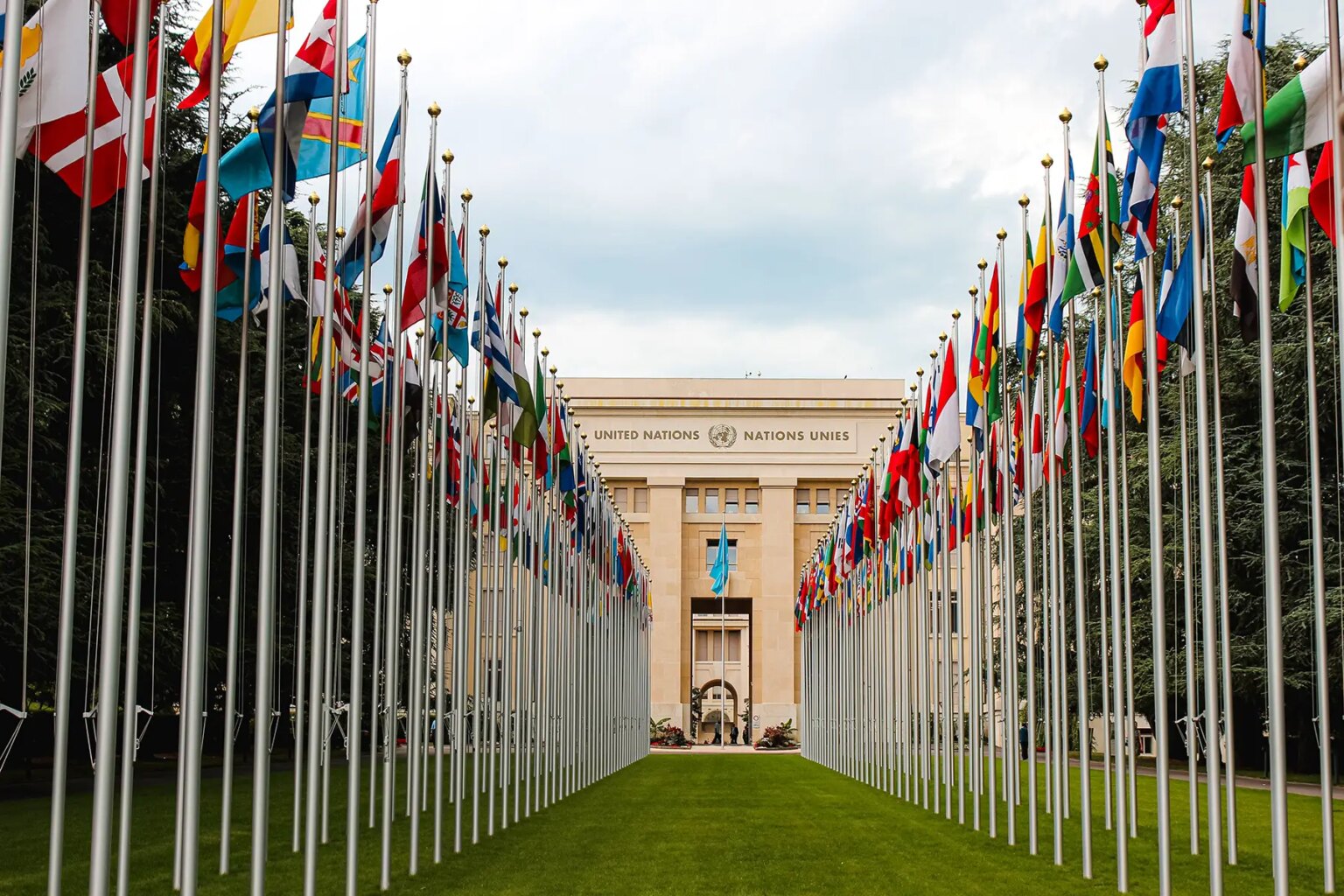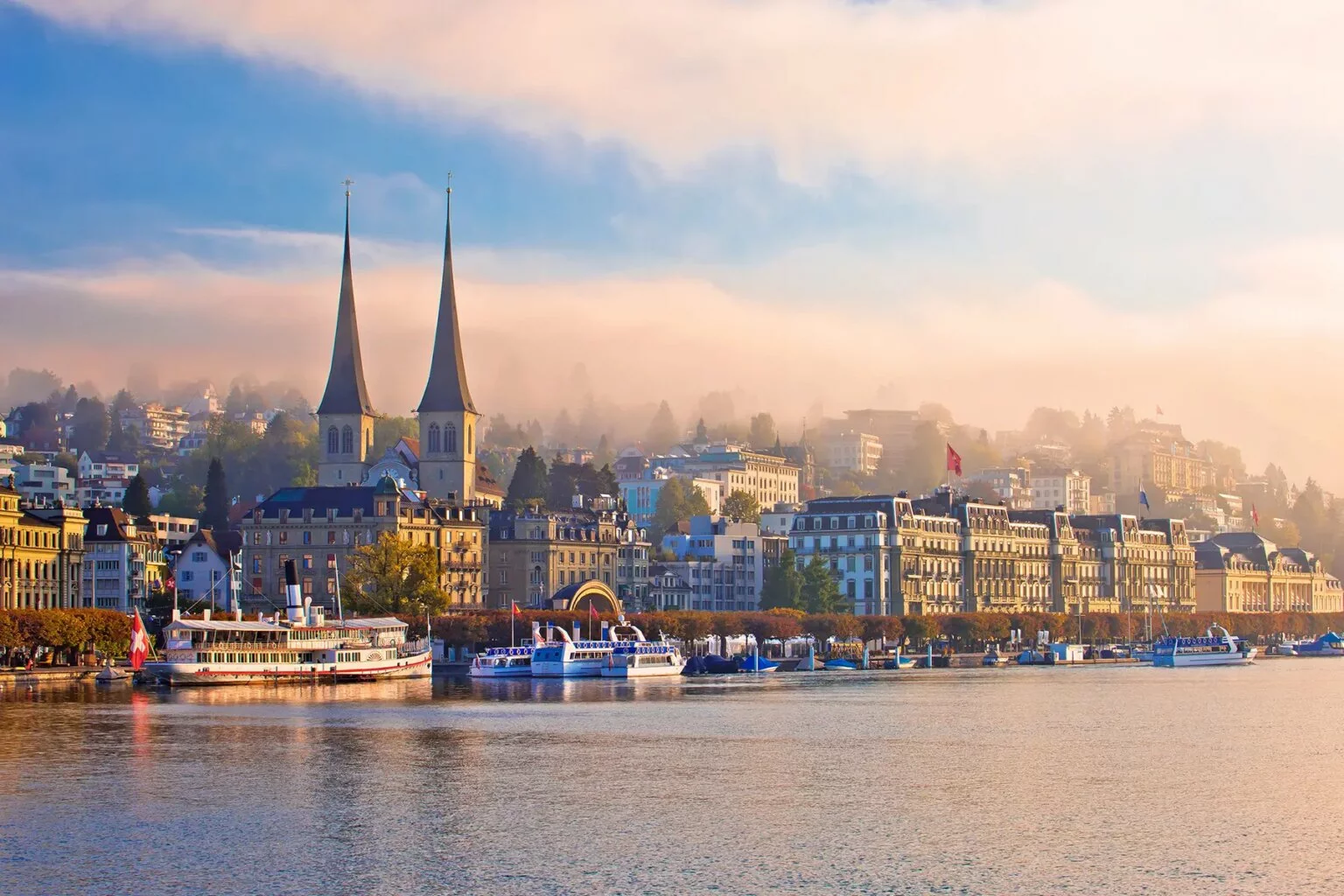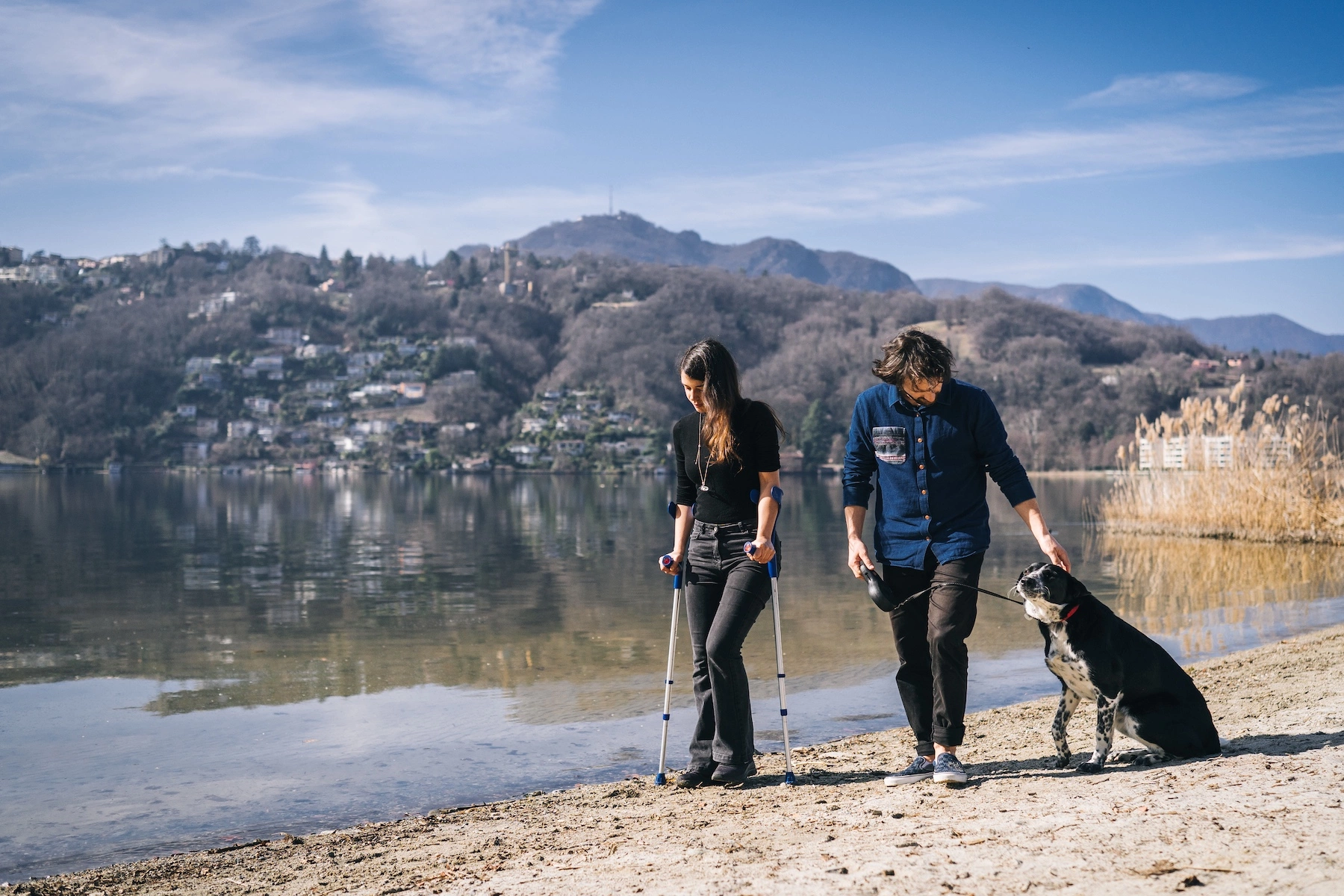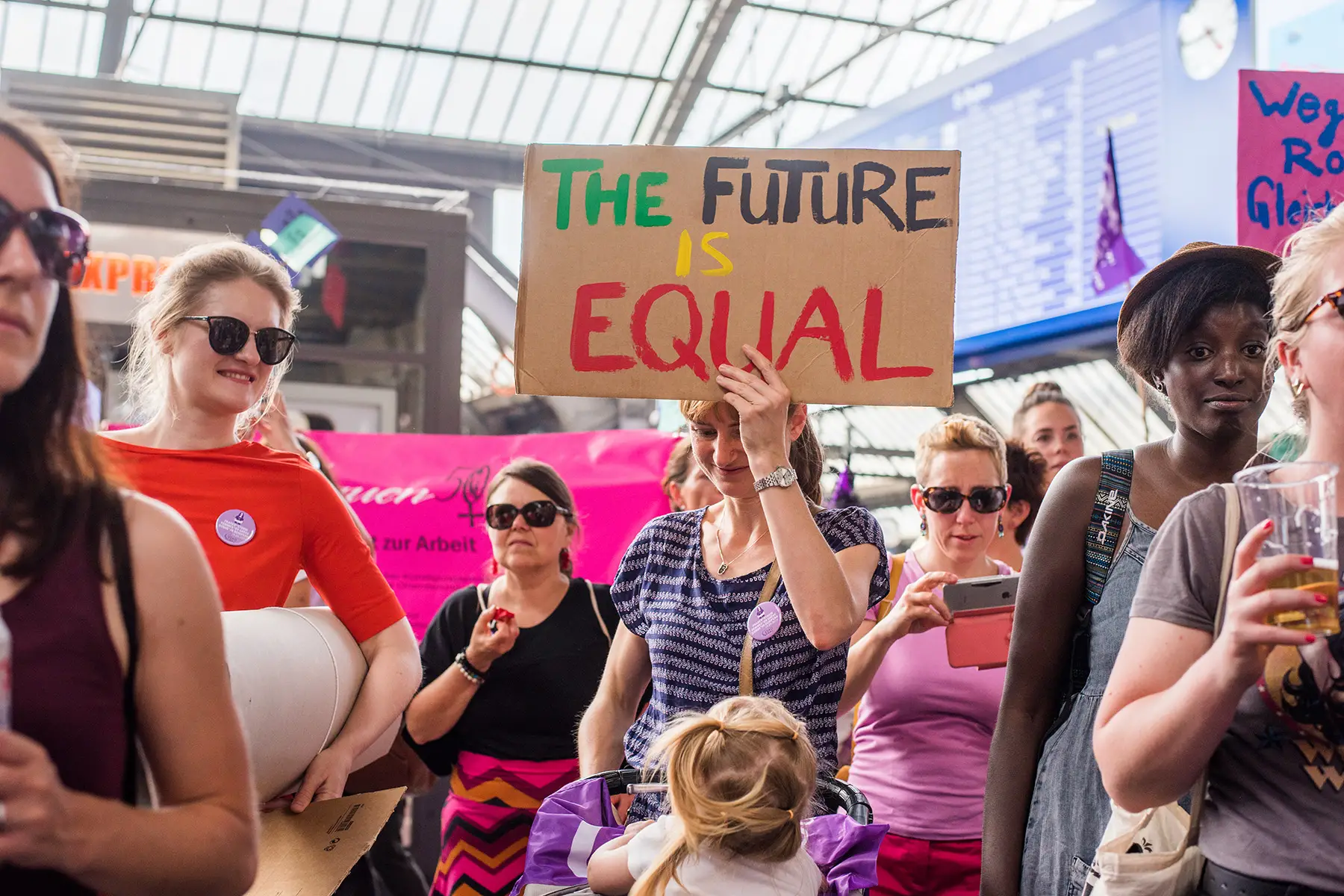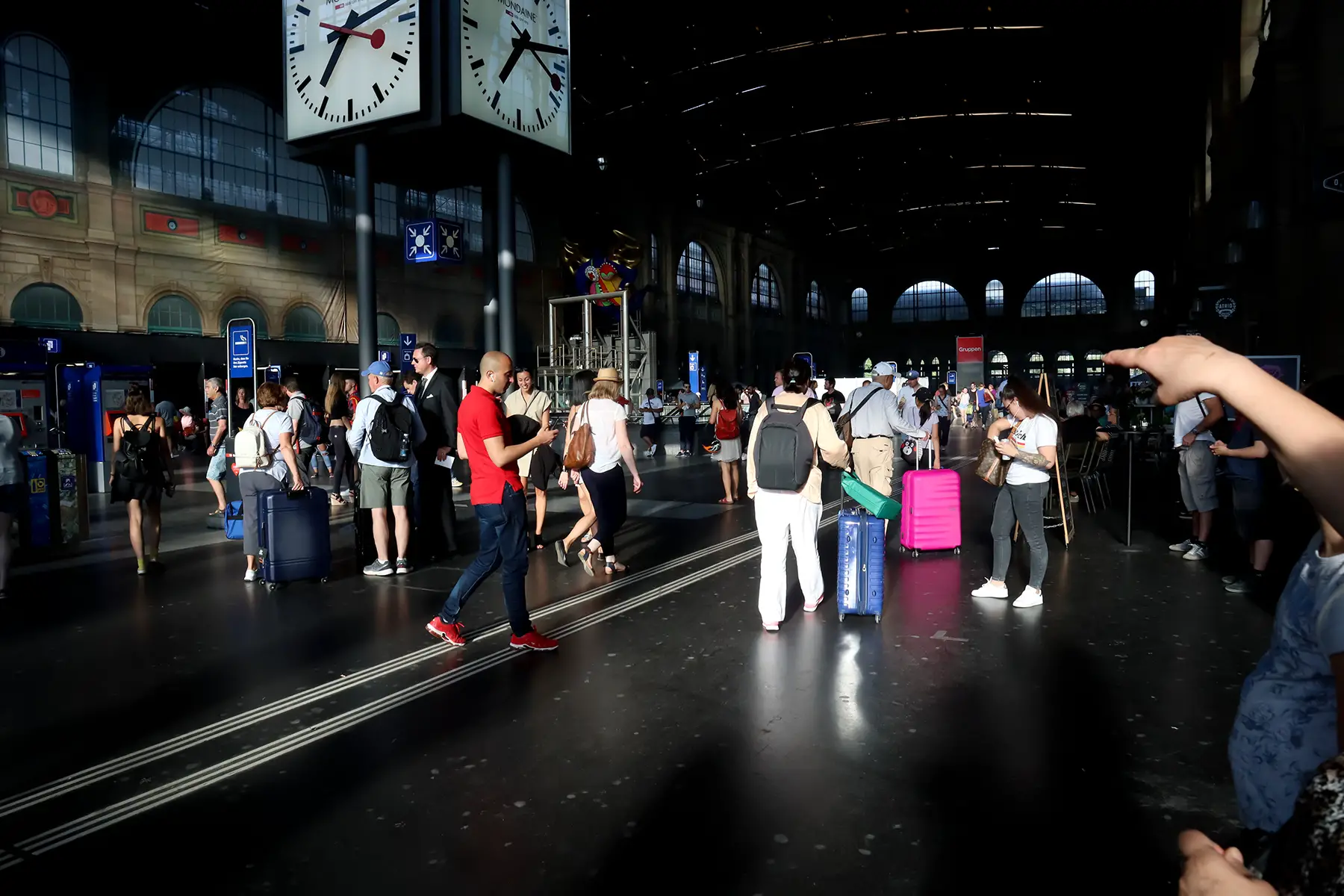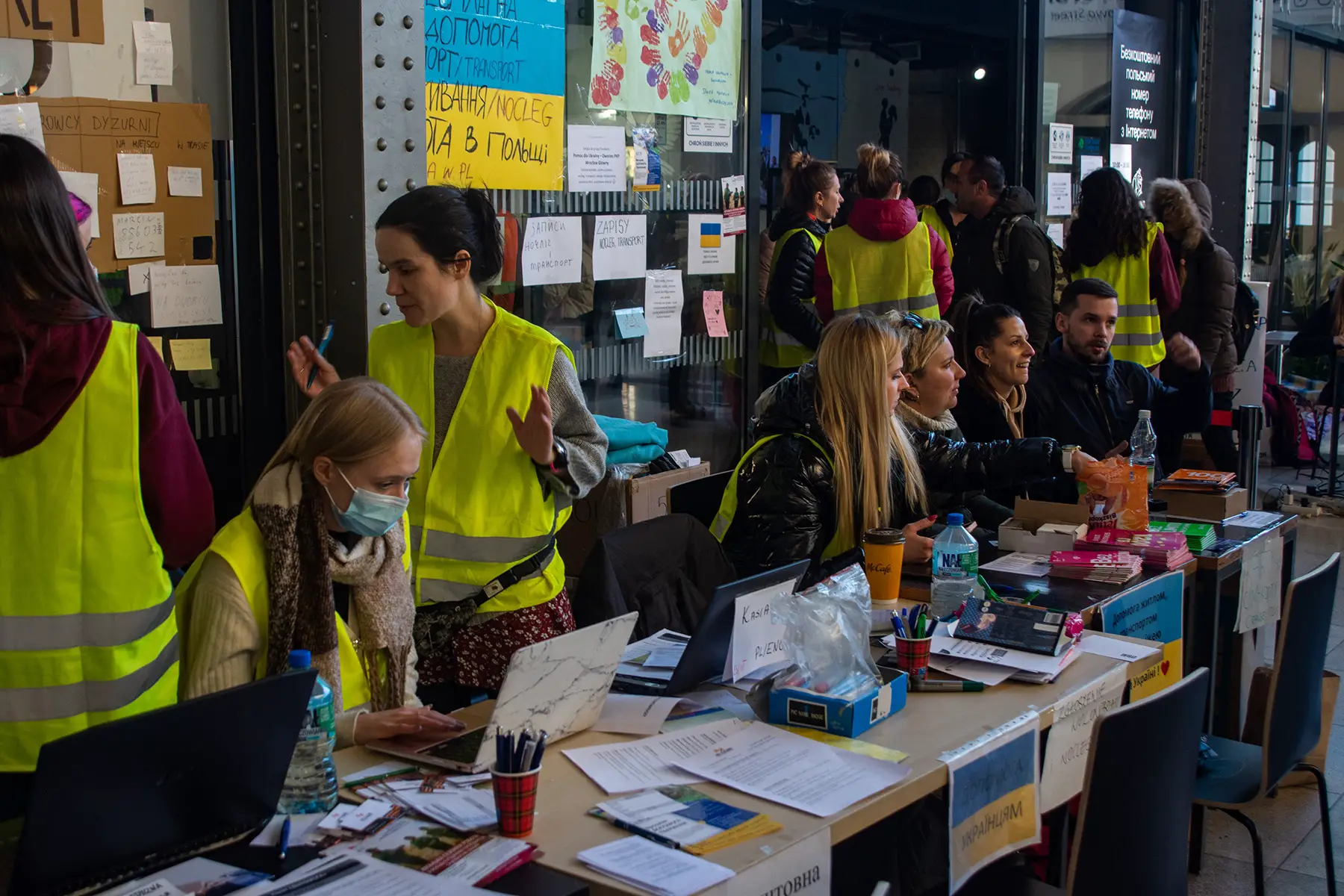When moving to a new country, it’s important to consider its civil and human rights principles. These apply to how you work, who you love, and how you interact in society – all essential aspects of your new life in Switzerland, as defined in the country’s justice and political systems.
Find out more about your human rights and protections in Switzerland in the following sections:
- Overview of human rights in Switzerland
- Swiss civil rights
- Political rights in Switzerland
- Swiss social and cultural rights
- Swiss workers’ rights
- Women’s rights in Switzerland
- LGBTQ+ rights in Switzerland
- Disability rights in Switzerland
- Swiss anti-racism and anti-discrimination legislation
- Migrant and refugee rights in Switzerland
- Rectifying human rights abuses in Switzerland
- Human rights organizations in Switzerland
- Useful resources
Ground News
Get every side of the story with Ground News, the biggest source for breaking news around the world. This news aggregator lets you compare reporting on the same stories. Use data-driven media bias ratings to uncover political leanings and get the full picture. Stay informed on stories that matter with Ground News.
Overview of human rights in Switzerland
Foreign policy
Switzerland has a longstanding connection with human rights. For example, the country is the depositary state of the Geneva Conventions, which has defined the rights of prisoners of war since 1949. In addition, the country is home to the United Nations Human Rights Council since its creation in 2006, as well as several other leading international human rights organizations. It is also, naturally, signatory to all relevant human rights texts and treaties, including the Universal Declaration of Human Rights of 1948. The country also works with the Council of Europe, the OSCE, and the Organisation Internationale de la Francophonie.
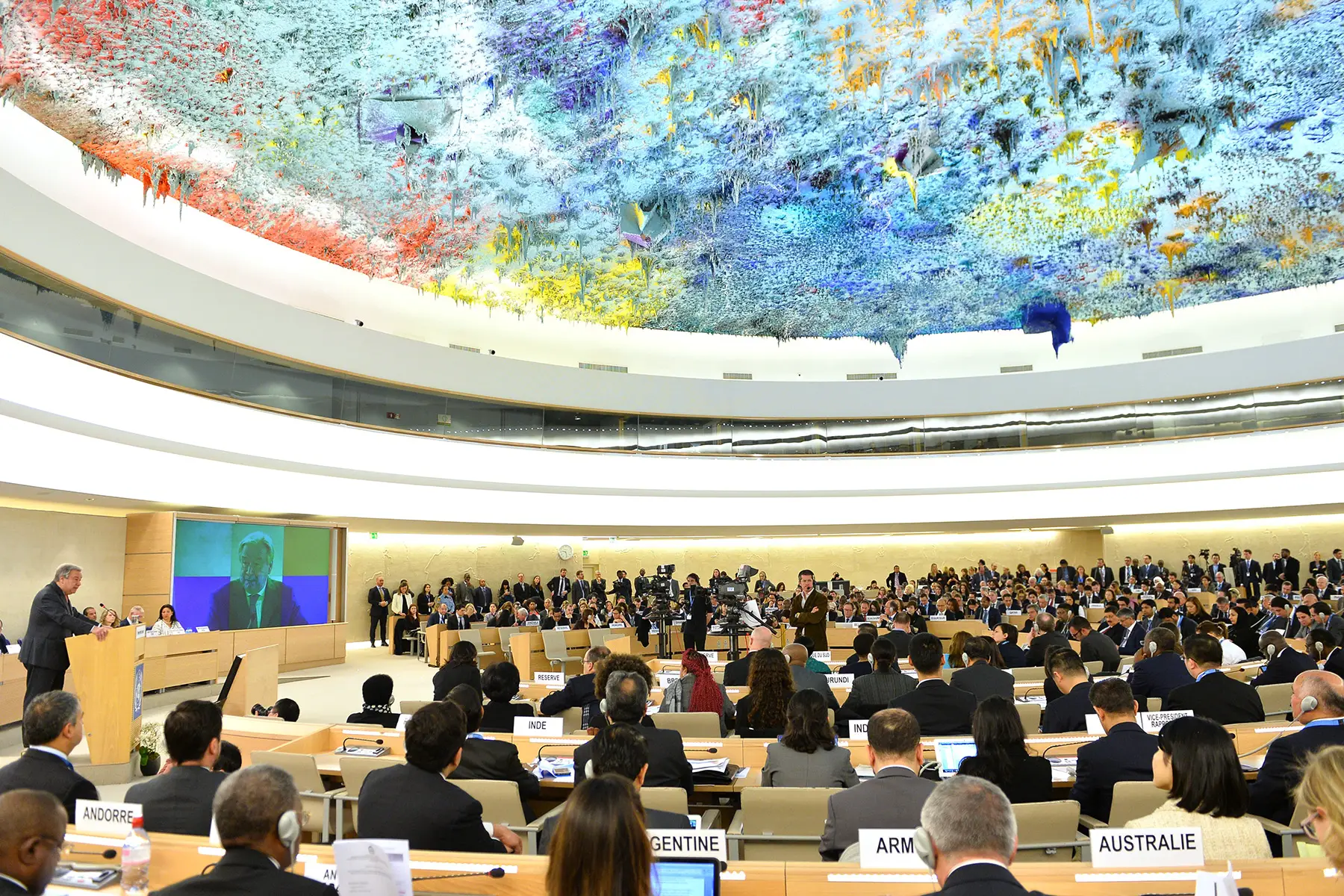
Photo: Mustafa Yalcin/Anadolu Agency via Getty Images
More recently and looking to the future, Switzerland’s Foreign Policy Strategy 2020–23 aims to promote peace and security, prosperity, sustainability, and digitalization. Through its International Cooperation Strategy 2021-24, the country’s foreign policies also want to focus on hot, emergent global topics such as climate change, job security, and the impact of migration.
Internal affairs
The promotion of mutual respect and equality are central to Swiss foreign, but also internal affairs. To this end, the Swiss Federal Constitution enshrines human rights in the country. These include freedom of expression, the protection of minorities and human rights defenders, and the eradication of the death penalty and torture.
Despite being home to UN and international human rights bodies, Switzerland lacks a national human rights authority. However, the Swiss Government approved the creation of a National Human Rights Institution (NHRI) in 2019. This is based on the Federal Act on Measures for Civilian Peacebuilding and the Promotion of Human Rights. The statute and financing still need finalizing, and the NHRI should begin work in 2023.
Swiss civil rights
Switzerland generally performs well in international indicators. For example, the country ranked joint fifth in Freedom House’s Freedom in the World report 2022, and first in the Cato Institute’s 2021 Human Freedom Index. Swiss civil rights include the right to work (and for reasonable pay), and to form trade unions. Citizens also have the right to vote, and the right to freedom of assembly and association. They also have the right to participate in cultural and social life.
In general, Switzerland provides its residents broad freedom of speech and expression, and its media is free and independent. However, some groups face restrictions on religious expression, especially Muslims – new minarets and mosques are no longer allowed to be built, and two cantons prohibit burqas. In 2021, voters approved their restriction across the country.
Switzerland’s attitudes towards minorities
Although Switzerland prohibits discrimination on basis of race, ethnic origin, or sexual orientation, there is still room for improvement. In addition to the limitations that Muslims face, many other minority groups face discrimination.
Switzerland’s constitution forbids torture, degrading treatment and punishment, and the death penalty, which the country abolished in 1992. That said, there have been cases in recent years in which the police have faced racial profiling and using excessive force. Some also claim that recent migrant deportation cases are in violation of the UN Convention on the Rights of the Child.
Despite its principles and promising start, it now seems that Switzerland’s progress has slowed. Shockingly, the gender pay gap has widened in recent years. In addition, the country does not fully comply with the UN Convention on the Rights of Persons with Disabilities. On the whole, LGBTQ+ people can live freely, but same-sex marriage became legal quite late in the game, in July 2022.
Counter-terrorism law controversy
As well as the use of excessive force, Switzerland has faced controversy due to its counter-terrorism laws. In 2021, the country controversially voted in favor of a new law that provided the Federal Police with far-reaching powers. Under this provision, police can target individuals they deem a threat, even if they are not subject to criminal proceedings. This law will allow the authorities to prevent these people from traveling, ban them from certain areas, and keep them under house arrest. Many of the measures can apply to residents as young as 12 years old.
Political rights in Switzerland
Switzerland’s elections are widely considered free and fair. It ranks ninth on the Economist Intelligence Unit’s Democracy Index 2021, scoring high for its electoral process and pluralism, but lagging in political participation. The country’s political system includes ‘direct democracy’ – a process through which voters take part in referendums to have their say on policy. These referendums happen regularly, as they are compulsory for amendments to the constitution, joining international organizations, and major law changes.
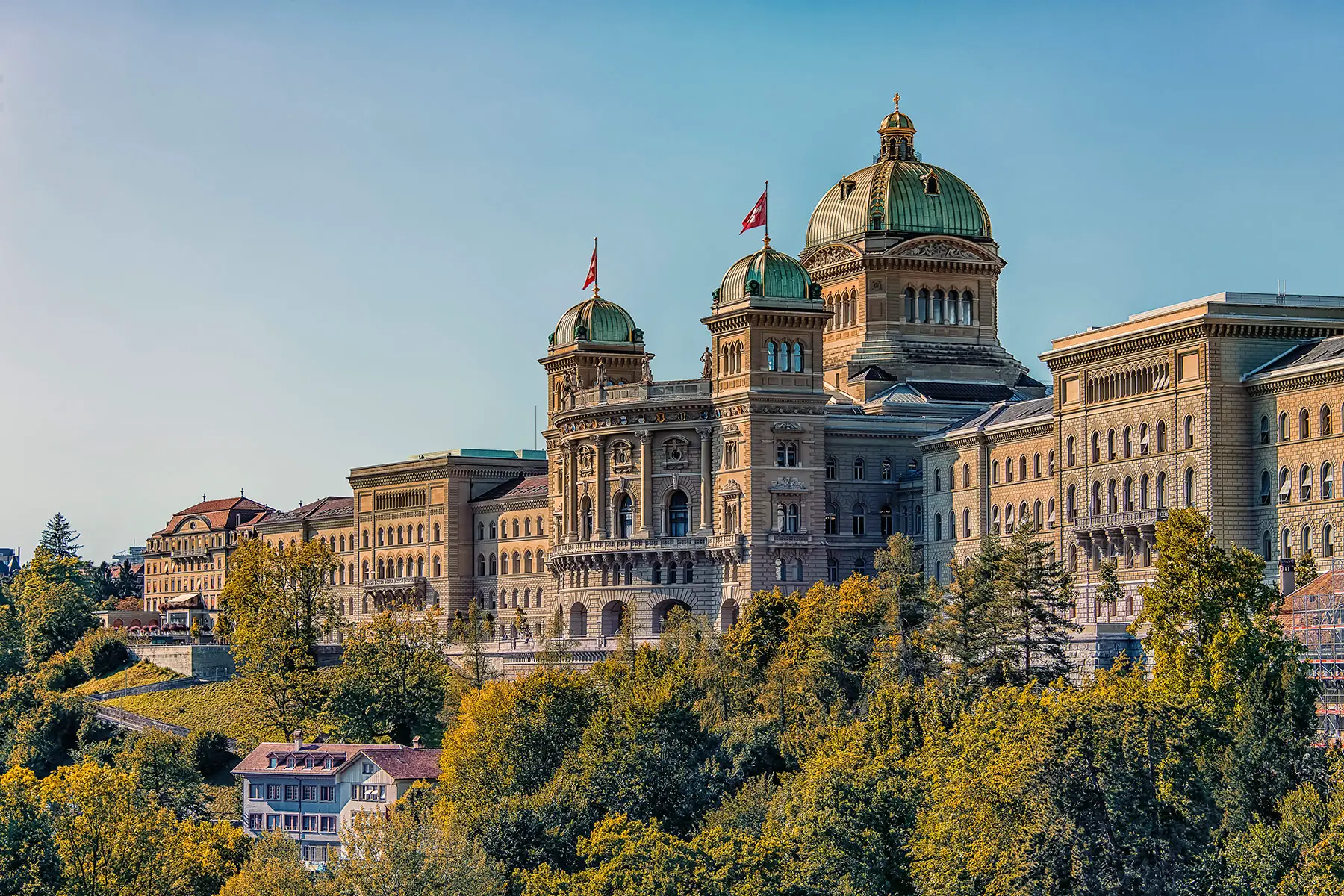
Despite the numerous opportunities for the Swiss to weigh in on politics, there are still limitations on who can vote. The Swiss canton of Appenzell was the last jurisdiction in Europe to allow women the vote, in 1990. Nowadays, only Swiss citizens can vote at a federal level, but foreign nationals can vote on some cantonal and communal issues and join political parties. In addition, people with certain disabilities are not allowed to vote, a rule that the UN and others have criticized.
Swiss social and cultural rights
Switzerland ranks highly among OECD countries for life satisfaction and leads the world on the 2021 Human Development Index. They also have one of the highest life expectancies in OECD countries, at 84 years. Although internationals can access healthcare, foreign nationals need to take out Swiss health insurance within three months of arrival.
The country has a strong social security system that anyone living and working in the country can access. It includes pensions, healthcare, parental benefits, unemployment benefits, and family allowances. However, there is no nationwide scheme – federal authorities and individual cantons oversee each aspect. There is also emergency aid available for people not eligible for social security.
Switzerland also has a reputable education system, with both public and private schools available. It is compulsory for children to attend school, even if they are not legal residents – although the age at which they start primary school varies depending on the canton. The education system is generally considered free from political indoctrination.
Despite its well-reputed public services, institutional discrimination has been reported when searching for work, in public spaces, and in education. Groups who face discrimination include Roma, Sinti, and people of African descent.
Swiss workers’ rights
Swiss labor law allows internationals to seek work in the country. EU citizens may stay in Switzerland for three to six months to find a job, after which they can apply for a residence permit. Non-EU citizens will need to find employment that meets requirements and provides them with a work visa. Otherwise, you must be over 15 to work full-time. Children aged 13–14 may undertake light work for nine hours per week (up to 15 during school holidays).
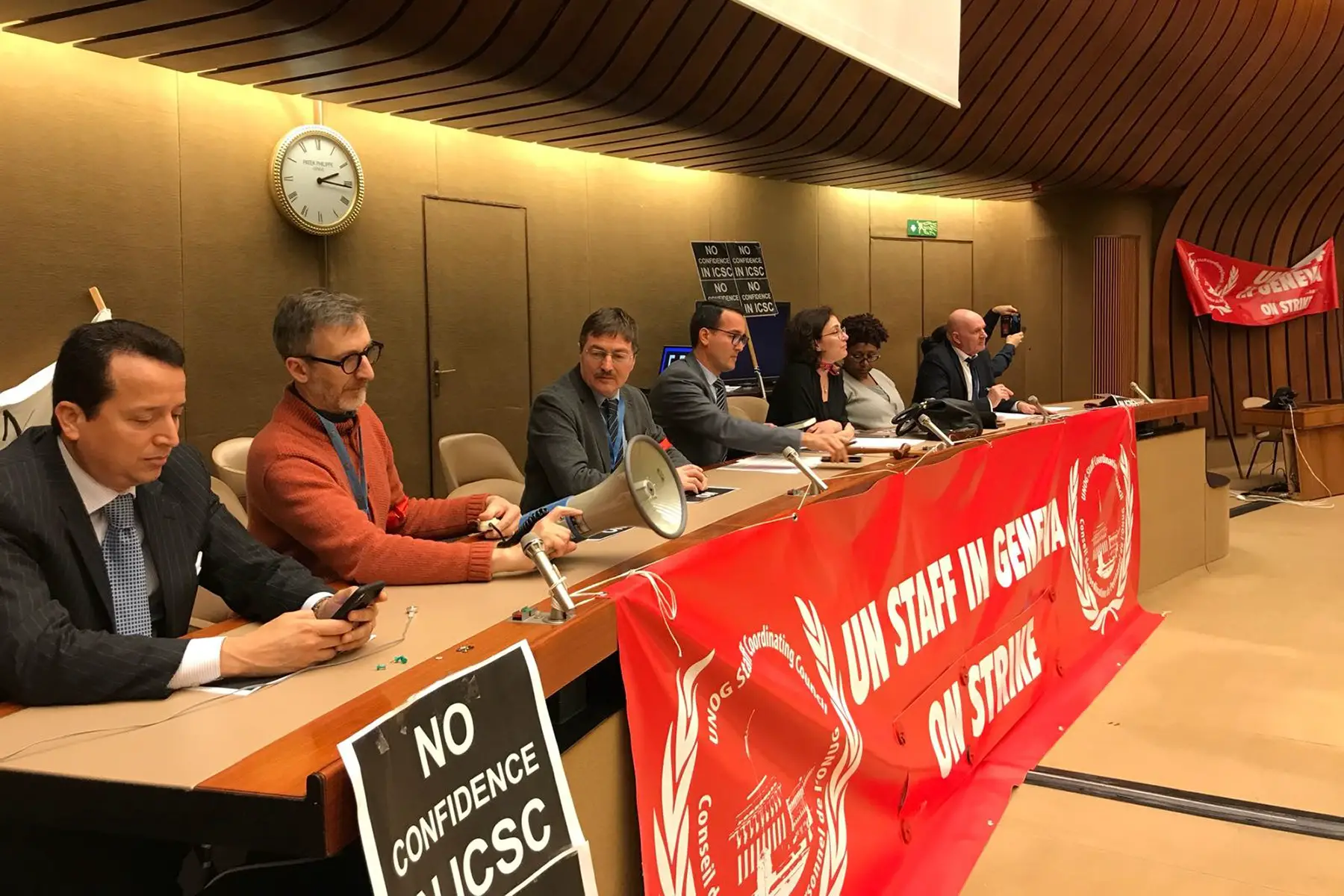
Photo: Bayram Altug/Anadolu Agency via Getty Images
The law is comprehensive and explicit when it comes to workers rights. For example, the maximum number of hours you can work is 50 (45 in some cases). There is no nationwide minimum wage in Switzerland, but some cantons have set their own salary requirements. Furthermore, although you may join a labor union to protect your rights, only about 14% of Swiss workers belong to one. The right to strike is also protected by the constitution.
Women’s rights in Switzerland
Nowadays, women’s rights in Switzerland are enshrined in law in the Gender Equality Act, which prohibits workplace discrimination, sexual harassment, and unequal pay. There are also women in over 40% of parliamentary seats, and the proportion of women on companies’ management boards has been increasing over the years.
However, there are still many obstacles to true equality. Women have recently been on strike to protest a lack of progress when it comes to equality and the gender pay gap (which in 2018 stood at a whopping 19%), and women still take on the majority of domestic work. In addition, men are not entitled to paid parental leave.
LGBTQ+ rights in Switzerland
Historically, Switzerland’s anti-discrimination provisions did not specifically protect LGBTQ+ communities. However, recent improvements in LGBTQ+ rights in Switzerland have seen the country rise to 19th on the 2022 ILGA-Europe rating of 49 European countries. These ratings are based on the agency’s research into civil rights, safety, parenting rights, freedom of expression, and whether it is an excellent place to live for LGBTQ+ people. The country also ranked 12th out of 150 countries on the Asher Fergusson LGBTQ+ Travel Safety Index in 2022, rising several places thanks to gay marriage being legalized in July 2022.
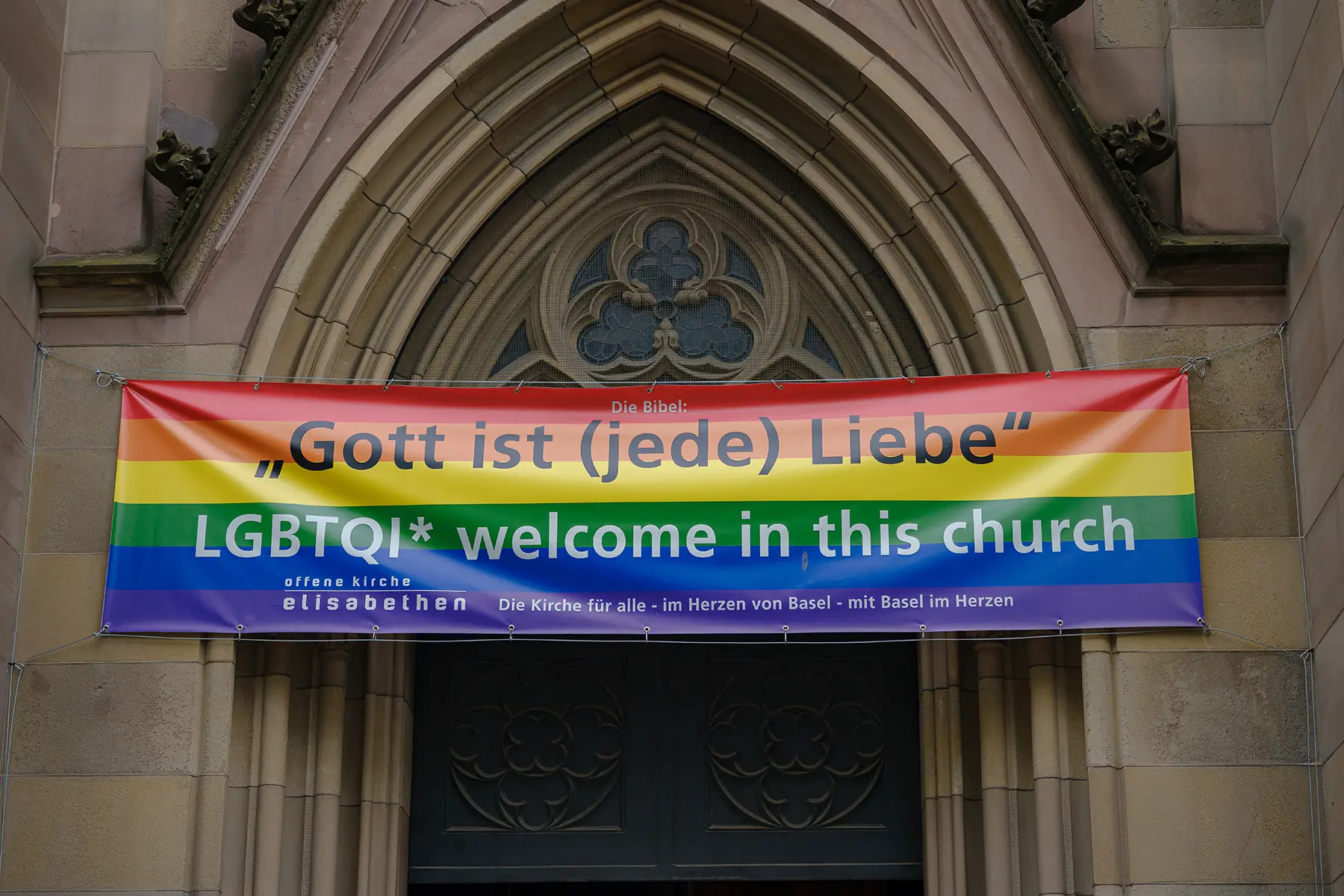
Since 1999, the Swiss Constitution has guaranteed LGBTQ+ citizens equal treatment before the law. The country recognized same-sex unions in 2007, and it also officially made homophobic discrimination a criminal offense, although the Swiss Transgender Network has noted that this does not extend to transgender individuals. Although LGBTQ+ rights have legal protection, Pink Cross and Lesbian Organization Switzerland reported discrimination in the workplace and even hate crimes.
Disability rights in Switzerland
Around 1.6 million people in Switzerland live with a disability, 340,000 of whom have severe limitations. The Disability Discrimination Act aims to prevent discrimination against people with physical, mental, or psychological impairments. It also provides for accessibility to buildings, information, healthcare, employment, and other services.
Along with the Disability Discrimination Act, Switzerland is also a signatory to the Convention on the Rights of Persons with Disabilities. However, the organization for disability NGOs, Inclusion Handicap, highlights the many challenges that disabled people still face, such as accessibility when voting and on public transport. A 2019 SCHR study also suggests that there are many gaps remaining in Switzerland’s implementation of this UN Convention.
Swiss anti-racism and anti-discrimination legislation
The Swiss Constitution, Civil Code, and Criminal Code prohibit discrimination based on ethnic origin, race, language, or religion. The Criminal Code also provides for punishment for disseminating hateful material, hate speech, denying genocide, and refusing to provide services to people of a certain race, origin, religion, or sexual orientation. This can lead to prison time or a fine. In addition, the Swiss Federal Department of Home Affairs publishes a list of contact points and advice centers for those affected by racism and discrimination.
Although the law bans racial and religious discrimination, in reality, some groups still face challenges. For example, 51% of Swiss voters supported a 2021 referendum seeking to ban full-face veils (burqas). The referendum campaign divided Swiss society, with Swiss law makers arguing that it would aid law enforcement. In addition, proponents of the ban also felt that religious veils were a symbol of the oppression of women and were not culturally acceptable in Swiss society. Critics of the ban argued that it singled out the Muslim community and violated women’s rights and freedom of expression and religion.
Migrant and refugee rights in Switzerland
People seeking asylum in Switzerland need to file an asylum application from within the country – at the border, an airport, or a reception center. In rare situations, it’s also possible to apply for a humanitarian visa from Swiss representation abroad. The Swiss State Secretariat for Migration then decides whether to accept the application, based on whether they believe the applicant needs protection. In total, this decision should take no longer than 140 days (for an accelerated procedure) or a year (for the extended procedure). People applying for asylum have the right to free counselling and legal representation when they arrive at a federal reception center. Unaccompanied children receive help from a ‘person of trust.’

Asylum seekers who receive a positive decision receive a B permit, which lasts for a year initially, and is renewed by the relevant canton. Those who have not been granted asylum might receive an F permit, which allows them to stay in Switzerland provisionally, providing it is not safe to return to their home country. You can read about the different permits and rights on the UNHCR website.
For the first three months after applying for asylum, applicants may not work. In addition, while they are waiting for a decision on their application, they may not travel abroad, except in exceptional circumstances. Recognized refugees may travel abroad, but may not visit their country of origin. Those who receive a negative decision need to file an appeal within five days.
The Swiss Centre of Expertise in Human Rights (SCHR) has found that many complex cases are being handled in accelerated proceedings (PDF), and there are many errors made regarding the clarification of facts and procedures. In addition, the SCHR criticizes the decision that immigration officials may legally access mobile phone data to verify refugees’ identities. There are also issues with communication between legal representation and health professionals, and a lack of legal representation for those in detention.
Rectifying human rights abuses in Switzerland
Switzerland has recently set up an independent complaints mechanism for victims of police brutality. However, the country presently lacks a nationwide Ombudsman or similar authority to review and respond to human rights violations. Swiss nationals and residents are able to launch formal complaints through the UNHRC.
Human rights organizations in Switzerland
The Swiss Center for Expertise in Human Rights (SCHR) run from 2011-2022 and consisted of a network of universities and human rights experts responsible for strengthening and supporting human rights capacities in the country.
Many international non-governmental organizations promoting human rights around the world are based in Switzerland. These include the UN Watch, the Global Alliance of National Human Rights Institutions, the International Federation for Human Rights, and the International Service for Human Rights.
